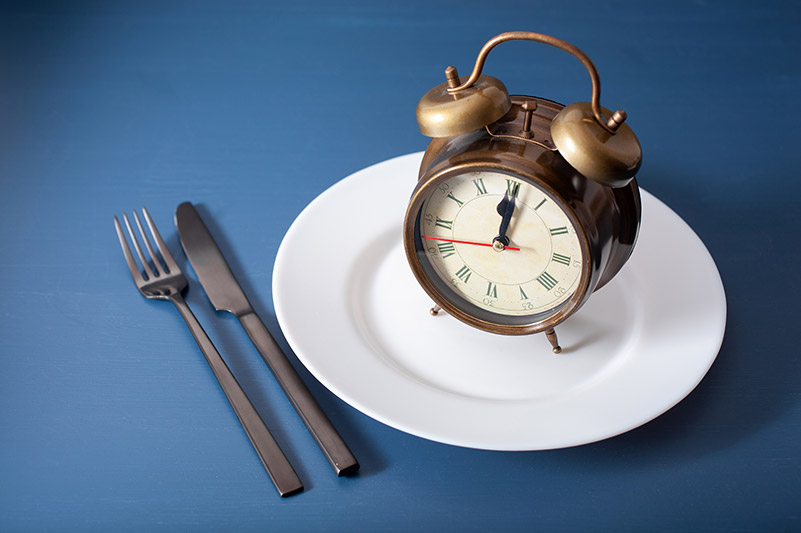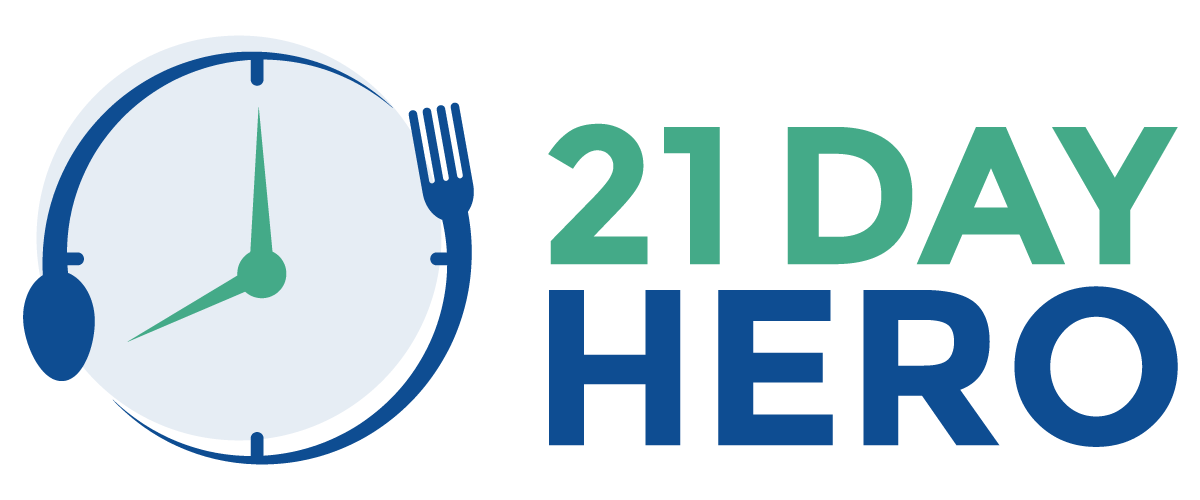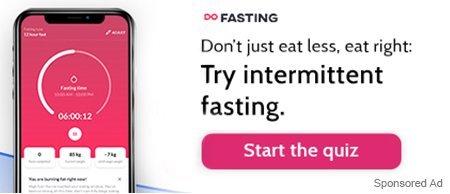What is Acid Reflux? | Triggers of Acid Reflux | Fasting To Relieve Acid Reflux | Tips To Prevent Acid Reflux
Have you considered fasting for acid reflux? We have long been fasting for various reasons, including religious purposes. Today, many doctors and healthcare professionals prescribe fasting to deal with various health-related issues.
One such prominent health issue is acid reflux and heartburn. Acid reflux, heartburn, or Gastroesophageal Reflux Disease (GERD) are all gastrointestinal complications that can lead to various complications and, in some cases, are life-threatening.
Although some medications can lessen the symptoms of acid reflux, experts believe that fasting can be an effective alternative to drugs. This article will discuss acid reflux fasting and whether you can use regular fasting to cure acid reflux.
What is Acid Reflux? Symptoms of GERD
It is a phenomenon when the acid in our stomach for digestion spills back up the esophagus. The symptoms of acid reflux are a severe burning sensation in the chest, which can also be felt at the back of the throat. In extreme cases, acid reflux can cause pain in the throat, difficulty swallowing, and dry cough. The discomfort can cause restlessness and loss of sleep.
Acid reflux is one of the most common health conditions that must have affected you at least once during your lifetime. It is a fairly normal occurrence, and the symptoms subside on their own, but what if you go through this regularly? Frequent acid reflux, heartburn, or GERD can affect your daily routine and activities and, in some cases, can be downright debilitating.
Our stomach and esophagus are separated by a sphincter muscle known as the lower esophageal sphincter, which contracts and relaxes periodically to allow food to pass into our stomach from our esophagus and prevent the food from going back up the esophagus. When this sphincter muscle relaxes abnormally, the acid in the gut can travel up the esophagus and cause heartburn, acid reflux, and GERD.

Triggers of Acid Reflux
Although acid reflux can affect almost anyone, some people are at a higher risk of experiencing acid reflux. Mentioned below are specific triggers of acid reflux.
- Obesity: People with obesity are most likely to experience some form of acid reflux. It is also observed that obese people are most affected by GERD.
- Heavy smoking: People who smoke daily also face acid reflux issues regularly. Surprisingly, people who are non-smokers exposed to passive smoke are also affected by this problem.
- Alcohol: People who consume alcohol experience heartburn and acid reflux episodes regularly.
- Medications: Certain medications can also sometimes cause heartburn or acid reflux due to the stomach acid reacting with the drug.
- Certain food items: Some common food items like coffee, spicy foods, tomatoes, and oily and greasy foods can trigger heartburn and acid reflux.
Fasting for Acid Reflux – Relieve it naturally!
Some acid reflux episodes can be cured with certain medications, but what if acid reflux becomes a chronic problem? Many doctors suggest fasting for GERD, as evidence shows that fasting cures acid reflux.
Most commonly, intermittent fasting plans like 16/8 fasting, 5:2 fasting, One Meal A Day (OMAD) fasting, Eat Stop Eat, etc., are suggested to counter acid reflux. There are ways fasting can cure your acid reflux, heartburn, or GERD along with lifestyle changes. Here is how it works:
1. Limits Food Intake
It is evident that acid reflux and GERD are closely related to food intake and eating timings. Fasting, in general, promotes a healthy food intake habit where you are advised to eat food during a specific predetermined eating window and fast for the rest of the day. It can help the stomach to better deal with acid secretion and prevent acid reflux and GERD episodes in general.
2. Helps Avoid Overeating
When we eat food, it travels down the esophagus and enters the stomach, where it sits for a while. The stomach walls secrete acid on the ingested food, forming postprandial acid. When a person overeats, the stomach walls are stretched. This acid pocket surpasses the gastroesophageal junction, which forces the acid to travel up the esophagus and causes heartburn and acid reflux. Fasting regularly means eating less food and preventing acid reflux and GERD.
3. Early Dinner
Eating right before bedtime is frequently linked to acid reflux. Intermittent fasting diets encourage people to consume food way before bed time so that the food is adequately digested before falling asleep. Practicing this habit can help you cure acid reflux.
4. Secretion of Ghrelin
While we fast, the stomach secretes the ghrelin hormone, also known as the hunger hormone. Studies suggest that ghrelin quantities are inversely proportional to stomach acid quantities, meaning the more ghrelin present in the stomach, the less amount of acid formation. It can be one of how fasting cures acid reflux and GERD.
5. Facilitates Gastric Emptying
One of the common benefits of fasting is lower blood sugar levels. It, in turn, is responsible for quicker gastric emptying. In general, it is said that delayed gastric emptying is directly responsible for acid reflux formation. People who fast regularly have quicker gastric emptying due to lower blood sugar levels, which can help prevent acid reflux and heartburn.
6. Aid in Weight Loss
This may be somewhat indirect, but as mentioned earlier, obesity is one of the root causes of chronic acid reflux or GERD. Regular fasting has been associated with insulin resistance, causing weight loss, which can reduce acid reflux in obese people.
To know more about Intermittent fasting and its benefits, read – Benefits Of Intermittent Fasting: A Complete List.
Tips To Prevent Acid Reflux and Heartburn

Although there is ample evidence for acid reflux fasting cure, here are specific other tips that can be followed to combat acid reflux and counter GERD symptoms in general:
Avoid Eating Before Bedtime

This is one of the most commonly suggested tips to prevent acid reflux. In general, it is considered that people who have acid reflux or heartburn issues must not consume food right before bedtime or even lie down after eating any food in general.
Health experts suggest we consume food and stay upright for at least 3 to 4 hours. It gives the body ample time to digest the food entirely so that the stomach is acid-free and free from reflux or inflammation. Eating food too close to bedtime can trigger acid reflux.
Stay Away From Alcohol and Smoking
Both alcohol and smoking have been proven to be primary triggers for acid reflux and heartburn, so people suffering from periodic acid reflux episodes must reduce alcohol consumption and cigarette smoking.
Avoid Triggering Foods
Because some foods tend to cause acid reflux, it is best to avoid them entirely or limit their consumption. For example, spicy foods, oily foods, tomatoes, chocolates, limes, lemons, etc. Avoid overly fatty foods and large meals, instead try lean meats and smaller meals. The best way to avoid reflux is smaller meals, and eat on an empty stomach when you are actually hungry.
Wear Loose Clothes
People who suffer from acid reflux should avoid wearing tightly fitted clothes or belts that are tight around the abdomen area.
Exercise

There is evidence that exercise helps prevent GERD by relaxing the stomach muscles. Maintaining a healthy weight is crucial to staving off numerous health risks and diseases. It is no different for acid reflux and GERD, as most people with a healthy lifestyle and weight do not experience acid reflux symptoms compared to overweight or obese people.
Natural Remedies
Some natural remedies, like grated ginger or a tablespoon of apple cider vinegar, can lessen the symptoms of acid reflux, but there is not a lot of evidence to back this claim. Read our Article here – When to drink apple cider vinegar while intermittent fasting? Also warm water may help, or chamomile tea.
Over-The-Counter Medication
Although some people might want to stay away from regular acid reflux medication, antacids, in general, are excellent at neutralizing stomach acid instantly. Certain medications like proton pump inhibitors can have some bad side effects, and are not recommended.

People Who Should Avoid Fasting
Fasting, although it has a host of different health benefits associated with it, may be harmful to some people to fast regularly. Some of them are as follows:
- Elderly people – People who are older than 65 years with some medical conditions must stay away from fasting as they might lose muscle mass. Also, since their digestive system is much weaker, fasting for prolonged periods might harm them.
- People with Severe Type-2 diabetes – People with type-diabetes should stay away from fasting as it can adversely affect their blood glucose levels.
- Teenagers who are in their growing years – Teenagers need all the protein and nutrition during their formative years as their body is still growing, and fasting might hinder their nutrition and growth.
- Pregnant or Breastfeeding women – Pregnant or breastfeeding women must stay away from any form of fasting as it can hinder their nutrition and have an adverse effect on their health.
In Conclusion – Acid Reflux and Heartburn While Fasting
I have personally struggled with Acid Reflux myself. Intermittent Fasting has been a game-changer for me, along with Apple Cider Vinegar, and a whole food healthy diet. Avoid processed foods as much as possible, and you will see results with this Guide!
Fasting for acid reflux and heartburn may be quite beneficial to relieve your symptoms. Obesity and bad eating habits can turn these commonplace issues into chronic health problems like GERD.
Incorporating popular fasting plans like intermittent fasting with exercise and the proper lifestyle can work wonders to prevent and reverse acid reflux, heartburn, and other related problems due to GERD. Observing the ‘what’ and ‘when’ of eating is vital to keep acid reflux issues at bay and to have a healthy life.
If you’re new to intermittent fasting, or if you want to improve your relationship with food, try our 21-day intermittent fasting challenge. You’ll get all the tips and tools you need to make it happen!
I recommend starting here to learn more about these types of fasting which are the MOST popular, starting with 16/8 Fasting, click on these guides below to learn more:
16/8 Fasting Guide, 14/10 Fasting Guide, 18/6 Fasting Guide, One Meal a Day Guide.
Also need help fasting? Check out these Top 6 Fasting Mobile Apps we recommend to help you on your journey.











